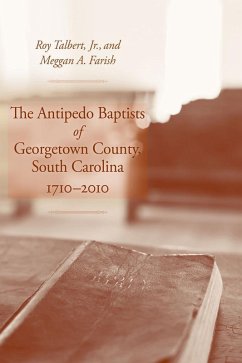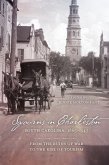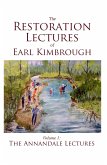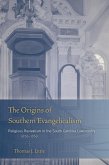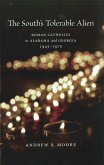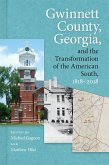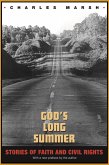The Antipedo Baptists of Georgetown, South Carolina, 1710-2010 is the history of the First Baptist Church of Georgetown, South Carolina, as well as the history of Baptists in the colony and state. Roy Talbert, Jr., and Meggan A. Farish detail Georgetown Baptists' long and tumultuous history, which began with the migration of Baptist exhorter William Screven from England to Maine and then to South Carolina during the seventeenth and eighteenth centuries.
Screven established the First Baptist Church in Charleston in the 1690s before moving to Georgetown in 1710. His son Elisha laid out the town in 1734 and helped found an interdenominational meeting house on the Black River, where the Baptists worshipped until a proper edifice was constructed in Georgetown: the Antipedo Baptist Church, named for the congregation's opposition to infant baptism.
Three of the most recognized figures in southern Baptist history-Oliver Hart, Richard Furman, and Edmond Botsford-played vital roles in keeping the Georgetown church alive through the American Revolution. The nineteenth century was particularly trying for the Georgetown Baptists, and the church came very close to shutting its doors on several occasions. The authors reveal that for most of the nineteenth century a majority of church members were African American slaves.
Not until World War II did Georgetown witness any real growth. Since then the congregation has blossomed into one of the largest churches in the convention and rightfully occupies an important place in the history of the Baptist denomination. The Antipedo Baptists of Georgetown is an invaluable contribution to southern religious history as well as the history of race relations before and after the Civil War in the American South.
Screven established the First Baptist Church in Charleston in the 1690s before moving to Georgetown in 1710. His son Elisha laid out the town in 1734 and helped found an interdenominational meeting house on the Black River, where the Baptists worshipped until a proper edifice was constructed in Georgetown: the Antipedo Baptist Church, named for the congregation's opposition to infant baptism.
Three of the most recognized figures in southern Baptist history-Oliver Hart, Richard Furman, and Edmond Botsford-played vital roles in keeping the Georgetown church alive through the American Revolution. The nineteenth century was particularly trying for the Georgetown Baptists, and the church came very close to shutting its doors on several occasions. The authors reveal that for most of the nineteenth century a majority of church members were African American slaves.
Not until World War II did Georgetown witness any real growth. Since then the congregation has blossomed into one of the largest churches in the convention and rightfully occupies an important place in the history of the Baptist denomination. The Antipedo Baptists of Georgetown is an invaluable contribution to southern religious history as well as the history of race relations before and after the Civil War in the American South.
Dieser Download kann aus rechtlichen Gründen nur mit Rechnungsadresse in A, D ausgeliefert werden.

